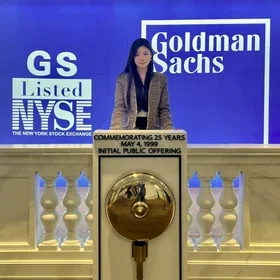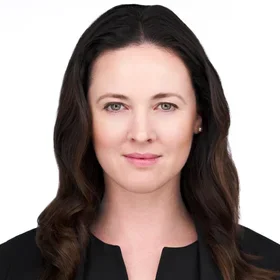As a product owner at Sotheby’s, Sam Engelberg ('19SPS, Applied Analytics) is at the forefront of data-driven innovation, leading several high-level data science product initiatives that optimize Sotheby’s business performance. His career has consistently bridged ambitious vision with technical expertise. Before joining Sotheby’s, Engelberg co-founded a food-science AI company (rx-diet.com), demonstrating high engagement with some of the largest U.S. health insurance plans for a demographic historically difficult to engage. Engelberg credits his master’s degree in Applied Analytics (APAN) from Columbia SPS for being the ideal environment to understand data’s role in driving change.
In a recent chat with SPS, Engelberg shared his perspective on AI, how his degree prepared him for modern-day success, and what he thinks current students can do to equip themselves with the skills needed to excel in today’s data-driven landscape.
Looking back, how have the skills you gained from the Applied Analytics program shaped your career trajectory? Are there any specific moments or decisions where those skills made a major difference?
The experiences and skills I learned while in the APAN program have opened many opportunities and technical projects that previously seemed remote, while also enabling me to position myself as a product manager. From building and conceptualizing a data lake and warehouse infrastructure, writing code to source alternative data, and developing data models to building state-of-the-art AI & ML products – these experiences and landing my current job would have been beyond reach before I pursued the APAN program.
According to your LinkedIn, AI and machine learning are your two focus areas. How have you seen the landscape of AI and ML shift in the past five years, and how have you adapted to those changes?
While looking at the AI/ML landscape and how much it has evolved over the past few years, I always think back to things I had already learned during APAN, or companies I worked at prior, that now are seen as groundbreaking developments. An example is working on an LLM-based project as my capstone, which was years before LLMs had become mainstream.
With a space that has seen so much rapid innovation, I always keep a pulse on the latest developments by reading research papers, attending conferences and following leading companies’ product announcements. While doing so, I consistently consider which business use cases these technologies can solve for and how I can start testing and proving the value behind them.
Is there a specific issue, challenge, or topic in the field of analytics that you think is particularly relevant to the future of the industry? How can current students prepare for it?
While technologies and use-cases are rapidly developing, there are several areas within analytics that have become more important than ever. Consistent themes that I have seen are areas like data prep—preprocessing and modeling, to funnel and use data for insights and analytics as well as create reusable data assets and make those available via self-serve. Additionally, working with and analyzing unconventional data formats like text, PDFs, etc., has become an important focus with LLM-based technologies rapidly evolving.
For a student, preparing for these areas means working on real-world projects and incorporating the latest technologies to try to solve problems programmatically while optimizing for efficiency—i.e., getting to solutioning as quickly as possible rather than spending time on the data preparation.
What has been the most fulfilling aspect of your career so far, and what goals or projects are you excited to pursue in the next phase of your career?
The most fulfilling aspects of my career are tied to tangible customer outcomes and impact. Two specific examples that come to mind are my experiences directly affecting patient outcomes with our AI-based food-science program at RxDiet as well as personalized recommendations we serve to clients of Sotheby’s. What makes these opportunities so rewarding is the ability to see hard work pay off and do so in a meaningful way that goes beyond a business-to-customer transaction.
In the next phase of my career, I hope to double down on and create larger opportunities for such impact. Always making sure that the impact is measurable and ties back to solving for the end consumer needs. At Sotheby’s, this means bringing personalization to the forefront of the client experience and making sure customers feel like we consistently meet their needs.
What advice do you have for current students in your program?
My answer to this question from an earlier interview still stands, and I can probably not find better words to frame my advice: Find, meet, and learn from people who inspire you. At Columbia, you will continuously be surrounded by people who are highly passionate and willing and able to share their experiences, knowledge, and habits with you. Don’t let a day pass in which you need to ask yourself if you have made the most out of your time, and know that the only person running after you is yourself.
About the Program
Columbia University’s Master of Science in Applied Analytics prepares students with the practical data and leadership skills to succeed. The program combines in-depth knowledge of data analytics with the leadership, management, and communication principles and tactics necessary to impact decision-making across industries and organizational functions.
Learn more about the program here. The program is available full-time and part-time, online and on-campus.


